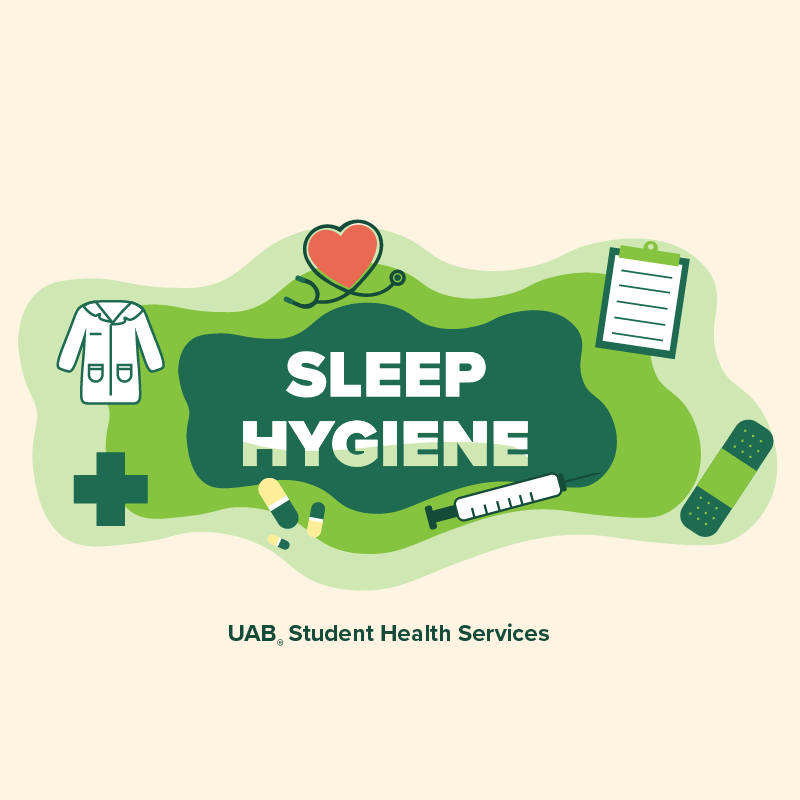By Jemi Weldon (DCA Student, Student Affairs Marketing & Communications)

Student Health Services and Student Affairs are collaborating to promote proper sleep hygiene among all UAB students. With finals season here at UAB just around the corner, sleep is probably the last thing on everyone’s mind. However, good sleep hygiene is one of the best ways to ensure maintaining mental, physical, and emotional well-being. College students tend to need 7 to 9 hours of sleep nightly to properly function during the day. Deep sleep helps improve memory retention, reduces mental and physical stress, and repairs the body from daily activities. The environment, afternoon and evening activities, nighttime routine, and coping skills all contribute to sleep hygiene.
Sleep Hygiene Tips and Tricks
- Go to bed and wake up around the same time every day - consistency helps with habit forming and regulation of the natural sleep cycle.
- Create a nighttime routine - read a book, take a hot bath, or meditate every night to prepare the mind for sleep.
- Create a sleep environment that is dark, cool, quiet, clean, and comfortable - blackout curtains, fans, sound machines, or eye masks can turn any bedroom into a haven for deep sleep.
- Reserve the bed for relaxing - avoid doing activities in bed not related to sleep, like homework and social media, to maintain a healthy mental connection between the bed and sleep.
- If possible, avoid naps - but, 15 to 20 minute naps can bring more alertness and energy without disrupting the sleep schedule.
- Avoid consuming alcohol and caffeine before bed - stimulants will propel energy levels, and alcohol can disrupt sleep patterns.
- Avoid screens before bed - melatonin production is inhibited by blue light.
- Avoid exercise three hours before sleep - exercise fuels alertness and energy.
- Don’t just toss and turn - after 20 minutes of eluding sleep, get out of bed and do something until sleepiness returns.
- Melatonin supplements may help - however, continual use of sleeping medications and supplements can create dependency and reduce effectiveness.
Adopting habits that maintain a proper sleep schedule can be difficult, but prioritizing and respecting what your body needs to be happy and healthy makes keeping these habits easier. If you have tried all of these tips and are still struggling, contact Student Health Services to find the right treatment for you.
For more information and to stay up to date on all information in regards to Student Health Services, follow them on Instagram.